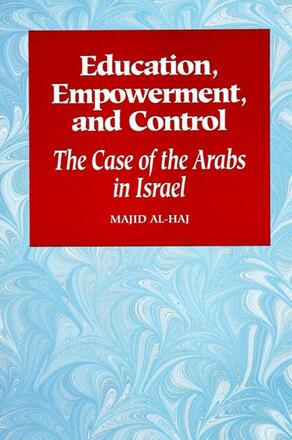
Education, Empowerment, and Control
The Case of the Arabs in Israel
Alternative formats available from:
Description
Education, Empowerment, and Control is about the education of the Palestinian Arab minority in Israel from the establishment of the state of Israel to the present. Using a comparative approach, the study throughout juxtaposes Arab and Hebrew educational systems in terms of administration, resources, curricula contents, and returns. Developments in education are analyzed in conjunction with wide demographic, economic, and sociopolitical changes.
Al-Haj explores the expectations of the Palestinian community on the one hand and dominant groups on the other, showing that whereas Palestinians have seen education as a source of empowerment, government groups have seen it as a mechanism of social control. The book also sheds light on the wider issue of education and social change among developing minorities in the postcolonial era. Al-Haj examines modernization, underdevelopment, and control in order to delineate the role education plays among a national minority that is marginalized at the group level and denied access to the national opportunity structure.
Majid Al-Haj is Senior Lecturer in Sociology and Anthropology and Head of the Center for Educational Research at the University of Haifa. He is the author of Social Change and Family Processes and co-author of Arab Local Government in Israel.
Reviews
"This is the first and only systematic social science account of contemporary Arab education in Israel that includes details on historical changes along with an evaluation of educational policies and programs. It is presented within a general model of social change in the society as a whole. This a comprehensive and thorough study that is likely to become a classic in the field. " — Calvin Goldscheider, Brown University